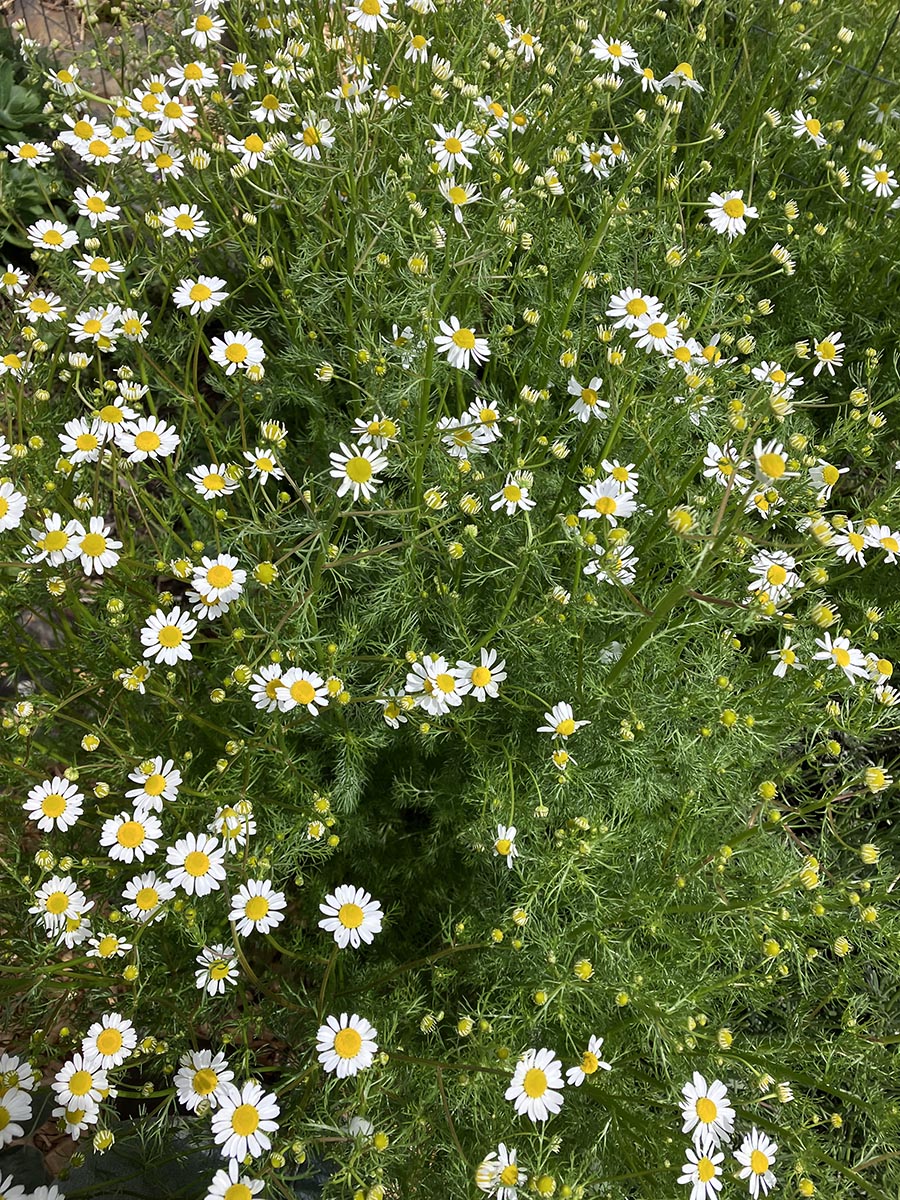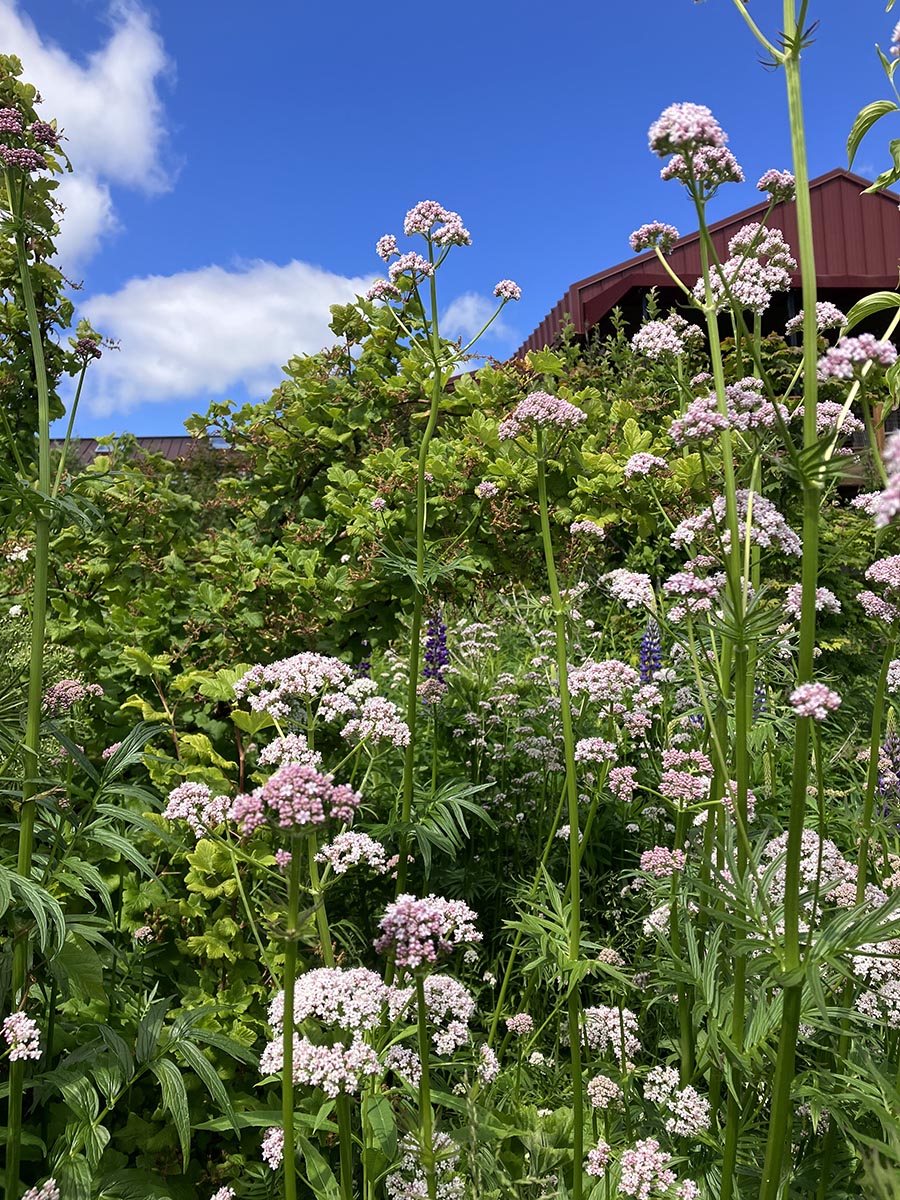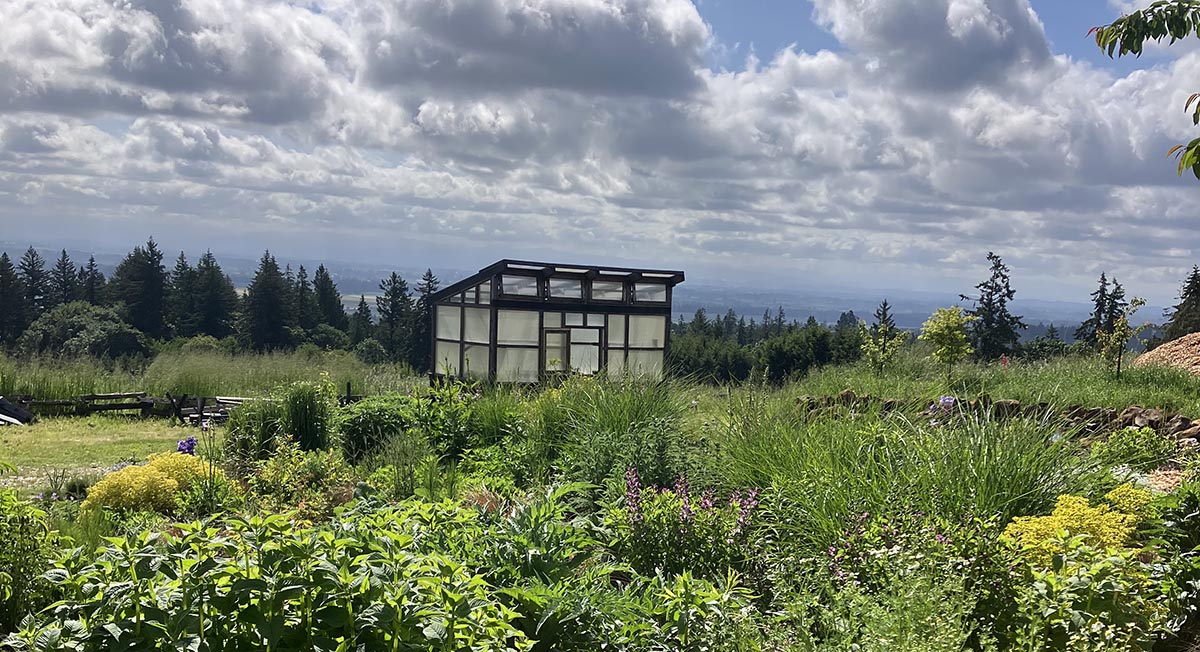“Listen, are you breathing just a little, and calling it life?
…
While the soul, after all, is only a window,
and the opening of the window no more difficult
than the wakening from a little sleep.
…
Only last week I went out among the thorns and said
to the wild roses:
deny me not,
but suffer my devotion.
Then, all afternoon, I sat among them. Maybe
I even heard a curl or two of music, damp and rogue red,
Hurrying from their stubby buds, from their delicate watery bodies.”
– Mary Oliver, Have you Ever Tried to Enter the Long Black Branches
Gardening is often an attempt at some form of ordering our lives. Seeking to create meaning out of the parcels of our soil, we find ourselves digging through the contents of our own inner souls. In our gardens, we seek perfection, a way to rein in the messiness of life. In this search for order, we watch as our gardens inevitably careen back toward chaos. The weeds will always come, the panic of heat waves, and the wind that takes down the plants we have neglected to trellis.
This futile attempt at control, despite all that we know about the world, is a trope of humans that extends beyond our gardens. There is something in us that seeks patterns. We search for safety through order and structure. Structure can be difficult in a garden, spaces that we share with wildlife and the whims of weather. Part of the joy of gardening is this very aspect of change, the fact that the evening primrose has come up in a new spot this year and that the bachelor buttons have reseeded amongst the fava beans.


Sometimes, I like to picture what my garden would look like if it was left untended. Some plants would die from neglect, the brambles would start to grow, and the paths would fill in with grasses. I find myself wondering if any threads of myself would remain in such a garden. I can see the pond, perhaps grown over with cattails but beautiful all the same, still providing water for bees and a home for the bullfrogs. I think of the robins that would still nest in the low branches of a willow I planted. In a way, something of ourselves does remain in our gardens. Gardens form the living architecture of our souls, through them we leave an imprint on this world.
When we tend to our gardens, we leave a piece of ourselves amongst the plants we have so lovingly tended. In every plant and every act we make in these spaces, there is an imprint of our lives. Our consciousness is layered in the leaves. Through the small acts of healing soil and sowing seeds, we alter the small revolutions of our worlds. Now, when the world continues to throw chaos my way, I find my anchor in the garden, sending out a deep tap root that connects me to the soil. With this feeling of being rooted and connected with the earth, my mistakes have felt less personal, rather they are opportunities for growth. I’ve come to learn to see the garden at a scale of decades rather than days. My need for ordering the world feels less like a manifestation of control and more like a yearning to find meaning in this world. As our gardens grow, change, and wreak havoc on our plans for straight lines and weed-less beds, we grow alongside them. We learn to be a little wilder, to lean into the chaos of life and celebrate the untamed nature of it all.
With Love from the Garden
Shannon
Farm to Table
This month, our tasting room menu features herbs, greens, snap peas, and fava beans.
